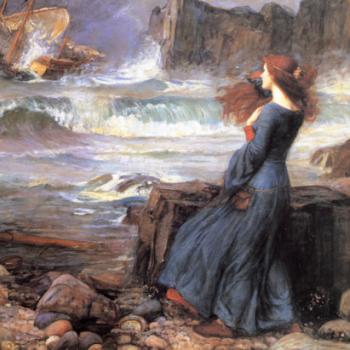Dickens made me love the biffen so much I named a cat after the apple. His description of a grocer still makes me happy and has changed how I view my own grocery store: sometimes I just marvel at it.
One virtue of Christmas Carol is how normal the vices and virtues in it are. Many of us don’t feel too wicked, because we are unlikely to be Hitler or to destroy Alderaan. Instead, we are just average and average means “good” to Americans. Dickens shows this to be stupid. Small men, fairly unimportant men, can be quite wicked in their own way.
Scrooge is merely stingy and cold-hearted, but that has warped his own life and those of many other people.
The homely goodness of the Cratchit family is a worthy goal. They are not particularly handsome, intelligent, and certainly have no importance, but they are good people: happy people. Life is hard, but they don’t expect life to be easy. Mrs. Cratchit shows spirit, unwilling at first to toast Mr. Scrooge, but she does it in the end for the Christ’s sake and for her husband’s.
Dickens takes the kind of people who would never get their own Wikipedia page and makes them important as they are to God. Scrooge and the modern state can call them surplus population, but Christmas does not in the name of a God who loves the sparrow.
My simple vices often seem harmful to me. If I love inappropriately, then what harm is in it? If I cling to gluttony, am stingy, or fall into debt, then surely the banksters, the terrorists, or the violent are worse. That they are worse is true, but that I am wicked if I cling to vice is also true. Scrooge is a bad man, though a good lawyer could get him off.
He breaks no laws, but God’s and that is enough to condemn him.
Modern Christmas is all about “love,” but Scrooge has failed to be righteous in his love. Love without righteousness, a standard learned by revelation and reason, always degenerates into greedy affection. It becomes about me and about my business. Scrooge loves himself and his own business and hopes to harm nobody else. He does not hate and has a warm passion for his chosen passions: business. We condemn that mistress while cuddling with our own more modern idols and passions.
Perhaps, Dickens is reminding us that our sins are less than those of the Lord Mayor in part because we lack the Lord Mayors talents and position. If we won some lottery and gained his position or wealth, then we too could commit gross sins of the world, the flesh, or the devil.
Glorious is the repentance of Scrooge in the end, because it is of his small sins and turns him to common virtues. He repents and changes. London isn’t much changed, but those around him are happier and that is all a man is called to do! My feast this year must be commonplace, because I am commonplace.
Dickens reminds me that the First Christmas was also common, but so common did it become that it became uncommon. It is the standard for all our feasts and all our jollifications, but it is an achievable standard, because if the Angels will sing over a stable, then surely they can sing over suburbia!
And so I turn from my mediocre mendacity to the common courtesy of Christendom: Christmas is the feast for the common man who became the King of Kings by perfecting being a man.












